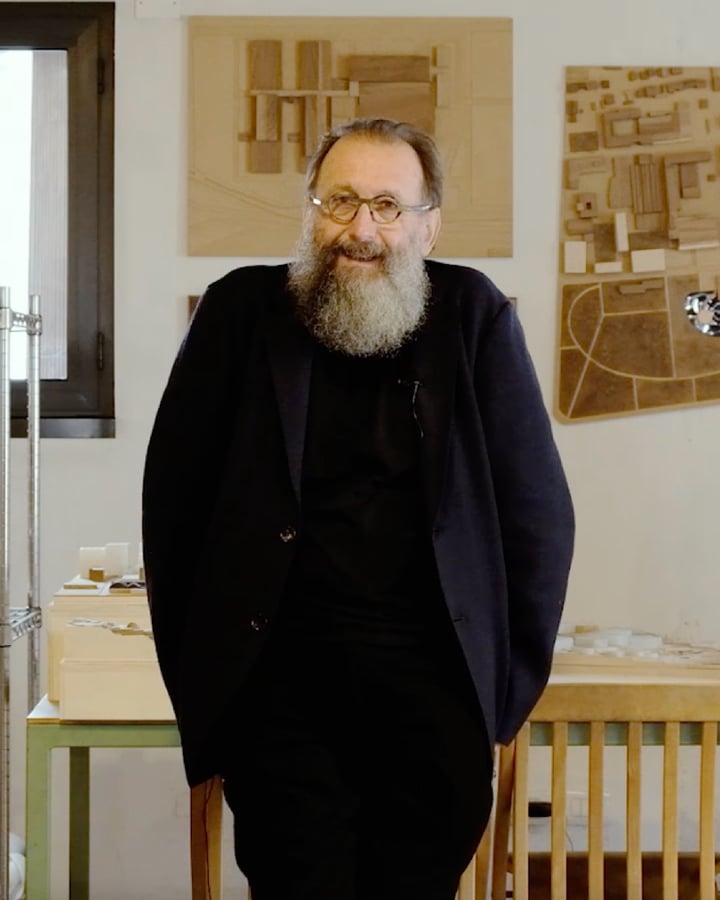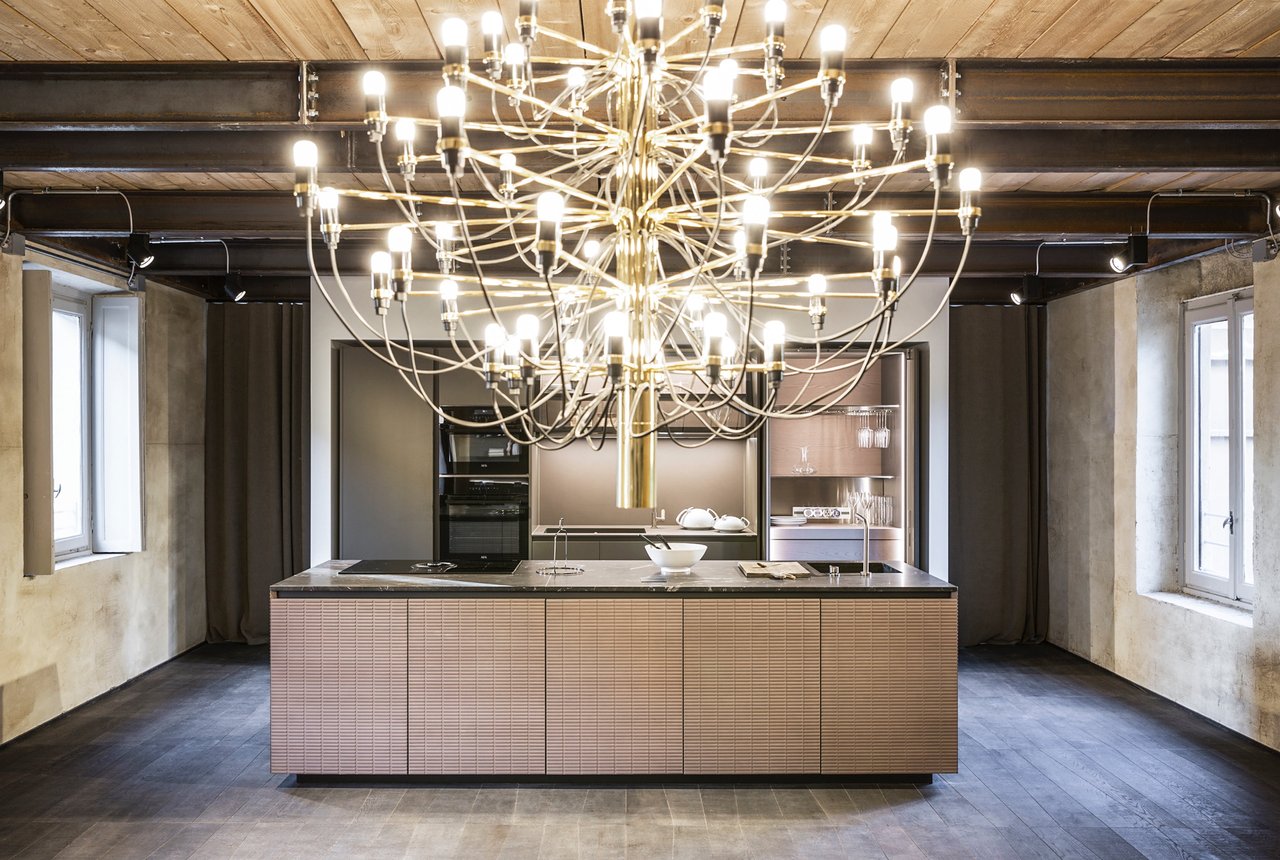
Born in Ferrara in 1951, he holds a degree in architecture from Florence University.
He has designed light fittings and furnishings for the best known Italian and European companies, including Artemide, Olivetti, Alias, Unifor, Hermès and Alessi. He was head of Design for Olivetti from 1988 to 2002.
He has designed and renovated buildings in Japan, Germany, Switzerland and Italy. He has also curated many art and design exhibitions, and designed museum buildings. His professional work has always been supported by his personal investigation of topics in design, technology and craftsmanship. In 1990 he founded Produzione Privata, a small business within which Michele De Lucchi designs products made using craft techniques and skills.
Michele De Lucchi
Born in Ferrara in 1951, he holds a degree in architecture from Florence University.
He has designed light fittings and furnishings for the best known Italian and European companies, including Artemide, Olivetti, Alias, Unifor, Hermès and Alessi. He was head of Design for Olivetti from 1988 to 2002.
He has designed and renovated buildings in Japan, Germany, Switzerland and Italy. He has also curated many art and design exhibitions, and designed museum buildings. His professional work has always been supported by his personal investigation of topics in design, technology and craftsmanship. In 1990 he founded Produzione Privata, a small business within which Michele De Lucchi designs products made using craft techniques and skills.
MICHELE DE LUCCHI FOR ERNESTOMEDA
In 2019 Michele De Lucchi reinterpreted one of Ernestomeda’s most successful models in a limited edition capsule designed exclusively for the Horti residential complex in Milan. The project partner was Milano Contract District, selected by BNP Paribas.
Michele De Lucchi’s project gave the kitchen a new look using wood with a bas-relief surface. The door panels featured a regular pattern of slats on which the light appeared to vibrate in chiaroscuro effects, This three-dimensional pattern was inspired by the sketches and sculptures in Michele De Lucchi’s “Cataste” series of evocative, archetypal constructions. The elegant island with the wooden doors designed by De Lucchi was crowned with a worktop in Breccia Imperiale granite.

Paradoxically, the kitchen is the room in the home which has changed the least. A successful kitchen must provide practical working conditions in the right mood.